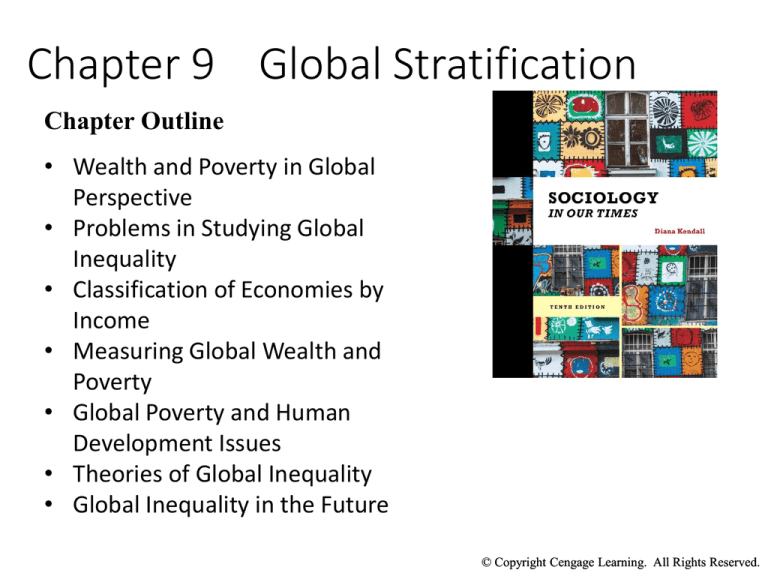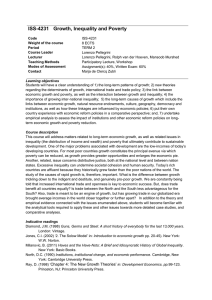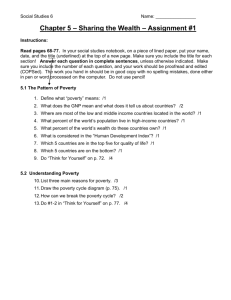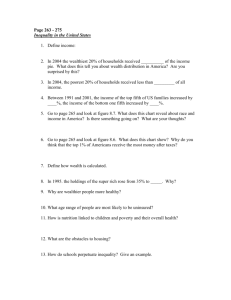
Chapter 9 Global Stratification
Chapter Outline
• Wealth and Poverty in Global
Perspective
• Problems in Studying Global
Inequality
• Classification of Economies by
Income
• Measuring Global Wealth and
Poverty
• Global Poverty and Human
Development Issues
• Theories of Global Inequality
• Global Inequality in the Future
© Copyright Cengage Learning. All Rights Reserved.
Wealth and Poverty in Global Perspective
• Global stratification refers to the unequal distribution of wealth, power,
and prestige on a global basis, resulting in
Problems in Studying Global Inequality
Terms to distinguish nations on basis of economic development and standard of
living
__________: rich, industrialized nations with capitalist economies and
democratic systems
__________: countries with moderate economic development and standard of
living
_________: countries with the lowest standards of living, shortest life
expectancies, and highest rates of mortality.
© Copyright Cengage Learning. All Rights Reserved.
Low-income economies
Almost half of the world's population
People engage in agricultural pursuits in nonurban areas
Primarily in Asia and Africa
High level of feminization of poverty
Middle-income economies
1/3 of the world's population
Latin American countries; India, Russia, Romania, and Kazakhstan
Formerly socialist economies are transitioning to market economies
High-income economies
65 nations
United States, Canada, Japan, and Australia
Relatively high standard of living
Economic growth has slowed, in part, due to deindustrialization
© Copyright Cengage Learning. All Rights Reserved.
Measuring Global Wealth and Poverty
The World Bank has defined
Absolute poverty
Relative
poverty
Measured
by comparing one person’s income with the incomes
of others
Subjective poverty can be measured by comparing the
actual income against the income earner’s expectations and
perceptions
© Copyright Cengage Learning. All Rights Reserved.
Global Poverty and Human Development Issues
Life expectancy has increased globally.
The average life expectancy of people in low-income countries is as much
as 30 years less than that of people in high income countries
Higher rates of infant mortality
Higher rates of infectious and parasitic illnesses
Educational attainment has increased for both men and women, but a large
gap remains in many developing countries
According to the Human Development Report (2010), fewer people
worldwide now lack basic reading and writing skills, but the illiteracy rate of
older adults remains high
The gap between the poorest nations and middle-income nations has
continued to widen
Poverty for women has continued to increase
© Copyright Cengage Learning. All Rights Reserved.
Theories of Global Inequality
• Modernization theory is a perspective that links global inequality to
different levels of economic development and suggests that lowincome economies can move to middle- and high-income economies
by achieving self-sustained economic growth.
• Dependency theory states that global poverty can at least partially
be attributed to the fact that the low-income countries have been
exploited by the high-income countries.
• The new international division of labor theory suggests that commodity
production is being split into fragments that can be assigned to whichever
part of the world can provide the most profitable combination of capital
and labor.
© Copyright Cengage Learning. All Rights Reserved.






